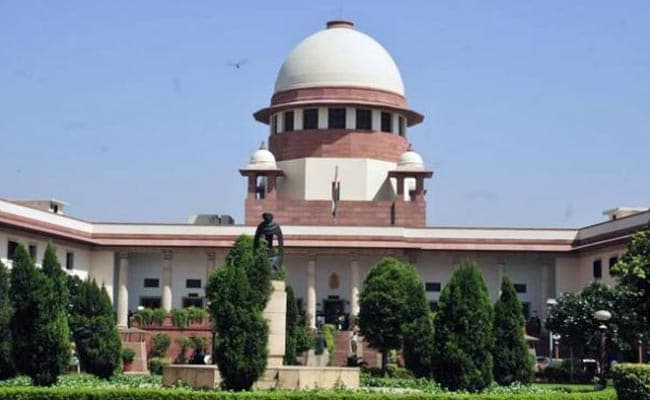
Religion should be separated from political process, the Supreme Court said.
- The top Court said one can't ask for votes in the name of religion
- A 7-judge bench taking a re-look at a 20-year-old verdict
- Seeking votes in the name of religion is illegal
Did our AI summary help?
Let us know.
New Delhi:
One cannot ask for votes in the name of religion and religion should be separated from the political process, said the Supreme Court, which is taking a re-look at the question of whether using Hindutva or Hinduism amounts during elections to exploitation of religious sentiments.
"The essence, the ethos of our constitutional system is secularism... religion and politics don't mix," said Chief Justice TS Thakur, who is heading the seven judge bench that is re-examining a verdict of 1995. "Religion should be separated from the political process," he added.
The 1995 verdict by former Chief Justice of India JS Verma had held that Hinduism is a way of life and there is no bar on expressing words like Hindutva or Hinduism or to have a Hindu state. So using such words will not amount to seeking votes in the name of religion, which is prohibited by law.
The counsel appearing for former lawmaker Sunderlal Patwa, one of the respondents in the case, argued that the 1995 verdict must be accepted by the seven-judge Bench and it was for the Parliament to change the law.
Chief Justice Thakur observed, "Parliament has done nothing in the last 20 years while the reference was pending. May be it is waiting for us to pronounce the judgment like in the sexual harassment case."
Taking the case of Mr Patwa, the court said he belongs to the Jain community. "But some person acting on his behalf makes an appeal that Mr Patwa, though a Jain, will help in making the Ram Mandir. The appeal is in the name of religion, not a candidate..."
The seven-judge bench is hearing three cases which question the current practice of seeking votes in the name of religion is not a corrupt practice and ask whether candidates who win this way should not be disqualified.
Social activist Teesta Setalvad and a few others, meanwhile, have appealed to the Supreme Court to reverse the 20-year-old "Hindutva" verdict to stop political parties from exploiting religious sentiments.
The petition said for the last two-and-a-half years, articulations of a narrow, supremacist variety have endangered a deep feeling of insecurity for minorities, free thinkers, atheists and those who uphold the Constitutional ideal of an India meant for all.
The arguments in the case will resume on October 25.
"The essence, the ethos of our constitutional system is secularism... religion and politics don't mix," said Chief Justice TS Thakur, who is heading the seven judge bench that is re-examining a verdict of 1995. "Religion should be separated from the political process," he added.
The 1995 verdict by former Chief Justice of India JS Verma had held that Hinduism is a way of life and there is no bar on expressing words like Hindutva or Hinduism or to have a Hindu state. So using such words will not amount to seeking votes in the name of religion, which is prohibited by law.
The counsel appearing for former lawmaker Sunderlal Patwa, one of the respondents in the case, argued that the 1995 verdict must be accepted by the seven-judge Bench and it was for the Parliament to change the law.
Chief Justice Thakur observed, "Parliament has done nothing in the last 20 years while the reference was pending. May be it is waiting for us to pronounce the judgment like in the sexual harassment case."
Taking the case of Mr Patwa, the court said he belongs to the Jain community. "But some person acting on his behalf makes an appeal that Mr Patwa, though a Jain, will help in making the Ram Mandir. The appeal is in the name of religion, not a candidate..."
The seven-judge bench is hearing three cases which question the current practice of seeking votes in the name of religion is not a corrupt practice and ask whether candidates who win this way should not be disqualified.
Social activist Teesta Setalvad and a few others, meanwhile, have appealed to the Supreme Court to reverse the 20-year-old "Hindutva" verdict to stop political parties from exploiting religious sentiments.
The petition said for the last two-and-a-half years, articulations of a narrow, supremacist variety have endangered a deep feeling of insecurity for minorities, free thinkers, atheists and those who uphold the Constitutional ideal of an India meant for all.
The arguments in the case will resume on October 25.
Track Latest News Live on NDTV.com and get news updates from India and around the world

